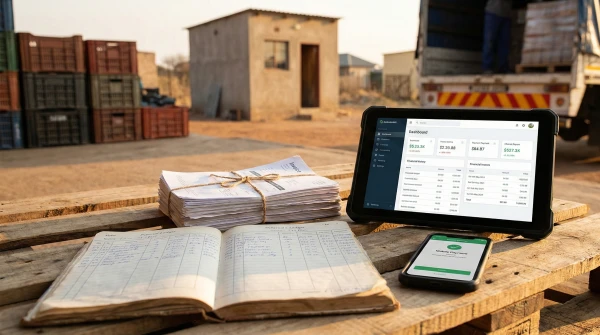Our Views
Understanding the Global Care Economy
The global care economy – encompassing all paid and unpaid caregiving work, from childcare and elderly care to support for people with disabilities – is increasingly recognized as a critical pillar of economic and social development. Despite this importance, care work has long been undervalued and underfunded, often treated as an invisible backbone of economies. Now, demographic shifts such as aging populations and changing family structures, combined with growing awareness of gender inequalities in care work, are placing the care economy firmly on the global agenda. For donors and care economy consultants, investing in the care economy is not just a moral imperative but a strategic necessity.
What is the Global Care Economy
The care economy encompasses all the services and support that allow people to be cared for across every stage of life. It includes formal services – such as daycare centers, schools, hospitals, and nursing homes – as well as informal caregiving by family members at home. This sector is the unseen backbone of society: when quality childcare and elderly care are available, other family members can work and economies thrive. Yet historically, the care economy has been fragmented and undervalued, with families often left to manage care on their own. By recognizing and strengthening this sector, we can transform individual caregiving burdens into organized services that benefit everyone.
The Case for Care Economy Investment
As the world pursues equitable growth, care economy investment is proving to be a powerful catalyst for economic and social progress. There are several compelling reasons for donors to expand funding in this sector:
- Boosting Employment and Economic Growth: Investing in care services creates millions of jobs and stimulates broad economic growth.
- Advancing Gender Equality: Expanding care services allows more women to participate in the workforce and helps narrow gender gaps in employment and earnings.
- Improving Social Welfare: Quality care services for children, seniors, and people with disabilities improve health, education, and overall social well-being, while reducing future social costs.
- Preparing for Demographic Change: As populations age, investing in elder care infrastructure and a trained workforce now will help societies meet rising care needs without overburdening families.
Gender and Care Work
Across the world, women perform the majority of caregiving, often at the expense of their own careers. Many leave the workforce or reduce their work hours to tend to children or elderly relatives in the absence of adequate support services. Even when women take on paid care jobs (such as nursing, teaching, or domestic work), these roles tend to be low-paid and lack advancement opportunities, reflecting how society has traditionally undervalued “women’s work.” Investing in the care economy is a direct way to change this reality. When affordable childcare and elder care services are available, more women can pursue education and employment opportunities. And when care jobs are professionalized and fairly compensated, the predominantly female workforce in this sector benefits with higher incomes and better working conditions. Together, these changes help close gender gaps in both unpaid and paid work, advancing equality and economic opportunity for women.
The Role of Donors and Care Economy Consultants
Funding and expertise are both essential to unlock the care economy’s potential. Donors – governments, development agencies, and foundations – can have a transformative impact by prioritizing care projects in their funding. Supporting initiatives such as affordable daycare programs, caregiver training, or improved eldercare facilities addresses urgent needs and shows that care work is a wise investment.
Meanwhile, care economy consultants provide the technical expertise to turn funding into action. They assess needs, craft policies, and oversee programs to ensure investments yield real results on the ground. By tailoring solutions to local contexts – for example, helping establish community childcare centers or developing standards for quality eldercare – consultants bridge the gap between plans and outcomes.
Case Study: Aninver’s Experience in Elderly Care in Bolivia
A recent project in Bolivia illustrates how targeted investments in the care economy can lead to meaningful improvements. In 2024, Aninver Development Partners, with support from the Inter-American Development Bank (IDB), conducted a national assessment of long-term elderly care services in Bolivia. Over five months, Aninver’s team visited 72 care facilities across the country to evaluate all aspects of service delivery for older adults. The consultants examined everything from the quality of care and staffing levels to administrative processes and the involvement of families, gaining a detailed picture of the system’s strengths and weaknesses.
Based on these findings, Aninver provided the Bolivian government with recommendations to strengthen its long-term care model for the elderly. Key proposals included enhancing training for care workers, improving facility standards, and developing community-based care options (such as day programs and in-home support) to complement the existing residential centers. This project demonstrated how a focused intervention in the care economy can guide policymakers toward effective reforms. It also highlighted the value of expert analysis and data: with the right insights, even a resource-constrained care system can formulate concrete plans to improve services and uphold the dignity of its seniors.
Conclusion
Prioritizing the care economy offers a path to more inclusive growth and social well-being. Treating care work as essential infrastructure enables greater workforce participation, advances gender equality, and ensures that the most vulnerable receive the support they need. For donors, every dollar invested in childcare, elder care, or caregiver training creates ripple effects across communities. For care economy consultants, this sector presents a chance to innovate and drive change.
Ultimately, building a world that truly values caregiving will yield more resilient economies and more equitable societies. As global awareness of the importance of care work rises, now is the time to turn that awareness into concrete action.










